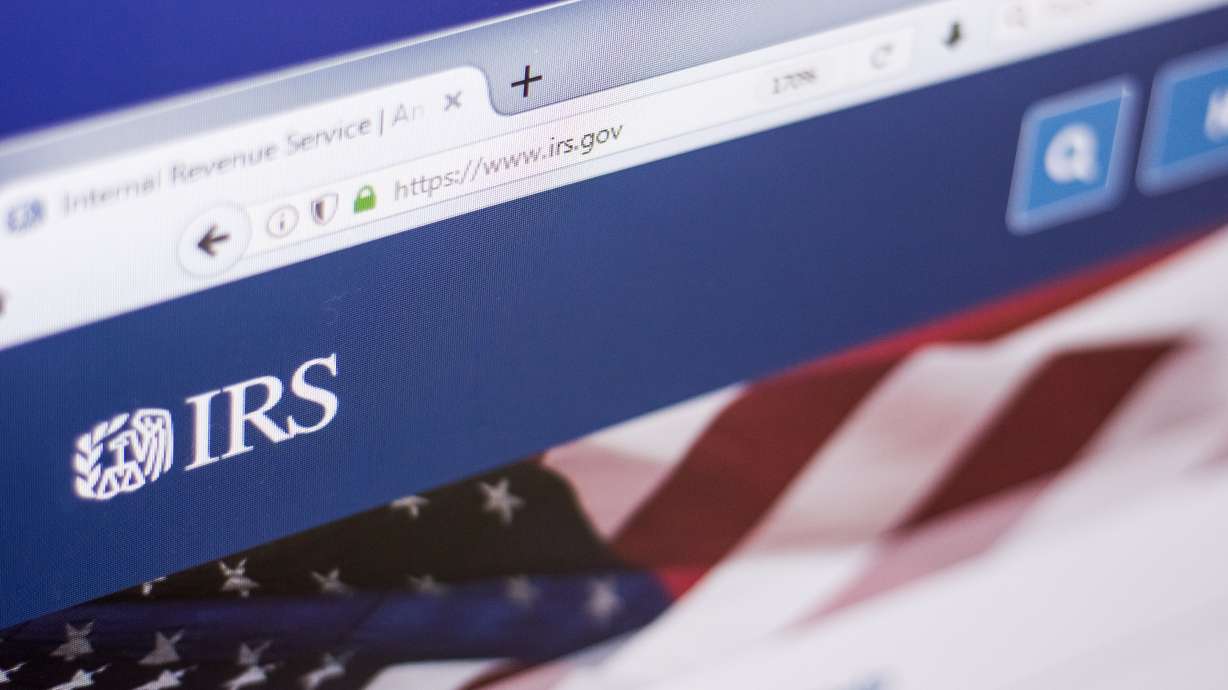Estimated read time: 3-4 minutes
This archived news story is available only for your personal, non-commercial use. Information in the story may be outdated or superseded by additional information. Reading or replaying the story in its archived form does not constitute a republication of the story.
SALT LAKE CITY — The COVID-19 pandemic has created ample opportunity for scammers and fraudsters everywhere. KSL.com reported last week on various schemes to look out for during this time.
But the federal government's $2 trillion stimulus bill, designed to funnel relief directly to Americans, has itself created a window for scammers to get between Utahns and their money.
"The scammers are trying to insert themselves into the process," said Tyler Hatcher, Assistant Special Agent In Charge for the IRS' Las Vegas Field Office, which includes Utah. A news release from the field office lists various scams that agents have dealt with as they work to get money to millions of Americans.
According to the release, the three most common schemes they see are:
IRS-Impersonation Telephone Scams
- Callers who claim to be IRS employees are using this "aggressive and sophisticated" phone scam, the IRS says, in which they tell victims they owe money and must pay it with a pre-loaded debit card or wire transfer. "If the victim refuses to cooperate, they are then threatened with arrest, deportation or suspension of a business or driver’s license," the release says.
- These callers may use fake names, caller IDs and IRS badge numbers, and may know a lot about their targets.
- They may urge you to pay your "debts" with the stimulus check you will receive.
Email, Phishing and Malware Schemes
- Some scammers send emails that appear to be from the IRS or another tax industry organization. These emails can ask recipients about a wide range of topics, seeking information about refunds, filing status, personal information and more.
- A variation of this scheme involving text messages has been seen around the country.
- These emails take victims to copycat websites and ask for personal information, like Social Security numbers, that could be used to file a false return. The fake sites may also have malware, which can give criminals access to your computer.
Email Phishing Scam: "Update your IRS e-file"
- "The IRS is aware of email phishing scams that appear to be from the IRS and include a link to a bogus web site intended to mirror the official IRS web site," the release says. "These emails contain the direction 'you are to update your IRS e-file immediately.'"
- The IRS does not initiate contact with taxpayers via email to ask for personal information. Hatcher said the IRS typically tries to contact taxpayers via traditional mail.
Hatcher said he encourages Utahns to use "common sense."
"The IRS will not email you," he said. "We will not call you on the phone. ... Look at how they're contacting you. A lot of the scams are robo-calls. We don't use robo-calls; we don't ever just dial up a computer and have them reach out to you."
The IRS also does not work with local police or sherrifs to threaten taxpayers with arrest — the agency has its own criminal investigation team, Hatcher said.
"The U.S. Attorney’s Office is aggressively pursuing those who are using this pandemic to commit fraud," said U.S. Attorney John W. Huber in the release. "We are also encouraging Utah residents to use caution."
Hatcher said his office, in concert with the attorney general's office, will "actively and vigorously prosecute" scammers who try to take advantage of COVID-19.
Other scams the IRS has seen recently, according to the release, include:
- "Fake emails purporting to contain an IRS tax bill related to the Affordable Care Act.
- "Telephone scammers targeting students and parents during the back-to-school season and demanding payments for non-existent taxes, such as the 'Federal Student Tax.'
- "'Robo-calls' where scammers leave urgent callback requests through the phone telling taxpayers to call back to settle their 'tax bill.' These fake calls generally claim to be the last warning before legal action is taken.
- "Scammers call saying they have your tax return, and they just need to verify a few details to process your return."










